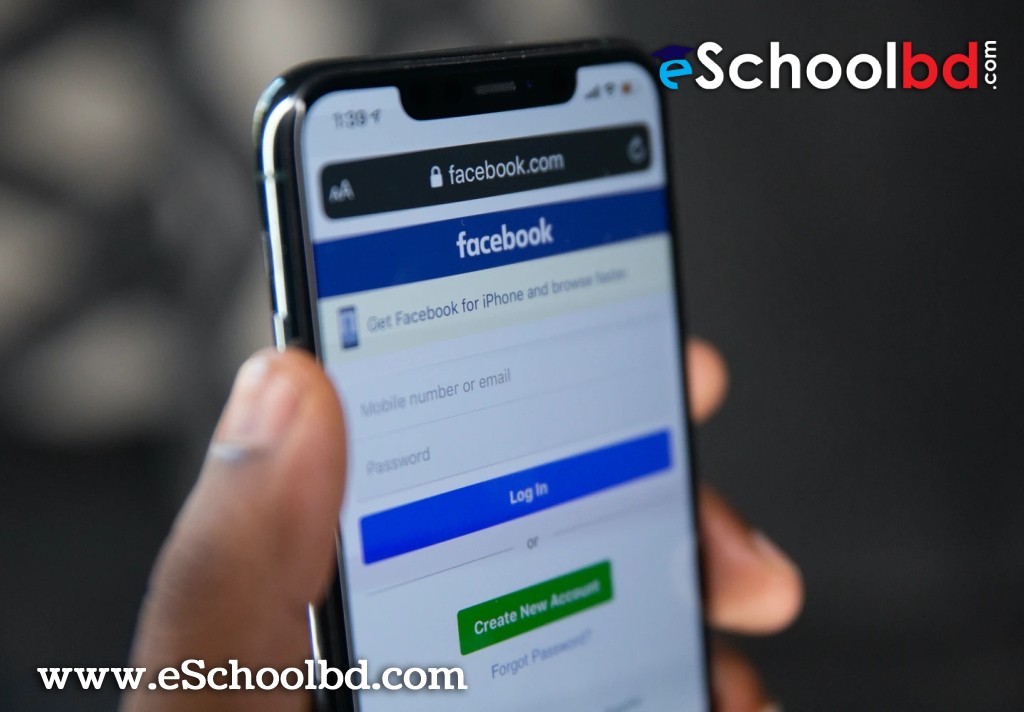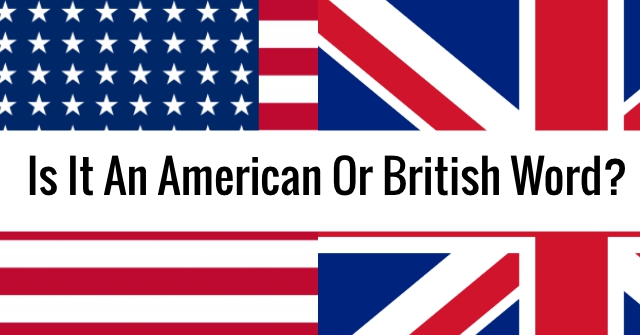সবার জন্য Vocabulary – শিখুন মুখস্থ ছাড়াই,
সবার জন্য Vocabulary – শিখুন মুখস্থ ছাড়াই,
🤔 Vocabulary- এর এত এত শব্দ মুখস্থ করতে কী আপনার Boring- লাগে?
🤔 Vocabulary- এর শব্দগুলো মুখস্থ করার পরও কী আপনি ভুলে যান?
🤔 Vocabulary- এর শব্দের সঠিক ব্যবহার নিয়ে কী আপনি Confused?
ভাবছেন Vocabulary- শেখাটাই যেন একটা ঝামেলা। কিন্তু এখন Vocabulary- শেখা যেন খুবই সহজ।
30 টি গুরুত্বপূর্ণ Word-meaning যা আমাদের দৈনন্দিন কাজে লাগে।
1.সত্যিই! = Really !
2.তাই নাকি? = Is it ?
3.হঠাৎ যে! = What a surprise !
4.কি বুদ্ধি! = What an idea !
5.কি সাহস! = How dare !
6.কি আপদ! = How nuisance !
7.কি মজার! = How funny !
8.কি মিষ্টি! = How sweet !
9.কি সুন্দর! = How lovely ! or,How beautiful !
10.খুশির খবর! = How joyfull !
11.আল্লাহর দয়ায়! = By the grace of Allah !
12.কি লজ্জার কথা! = What a shame !
13.কি ভয়ানক! = How terrible !
14.কি দুঃখজনক! = How tragic !
15.হায় আল্লাহ! = My goodness !
16.বাহ্ দারুণ তো! =Wow !
17.কথাটা সত্য! = That’s true !
18.চুপ কর! = Shut up !
19.তাই বুঝি। = I see!
20.মনে হয় । = It seems!
21.ধ্যাৎতেরি! = Oh shit !
22.একটুও না। = Not a bit!
23.প্রশ্নই ওঠে না। = Unquestionable!
24.যা-ই হোক। = Anyway!
25.এটা কোনো ব্যাপার না। = It doesn’t matte!
26.আমার মনে হয়। = I guess!
27.চুলোয় যাক! = Damn it !
28.সেটাই ভালো। = That’s good!
29.তুমি আবার এসেছ! = It’s you again !
30.সাবাস! = Well done!
আমি কি পরেরটায় যেতে পারি? – Am I allowed to leave for the next?
এবং তোমার কি অবস্থা? – And how about you?
আর কিছু? – Anything else?
নতুন কোনো খবর আছে? – Anything new going on?
তুমি কি তাদের বিয়ের অনুষ্ঠানে যোগ দিচ্ছ? – Are you going to attend their wedding?
তুমি কি বাজারের দিকে যাচ্ছ? – Are you going toward market?
তুমি কি কি উপস্থাপনায় দক্ষ? – Are you good at presentation?
তুমি কি কম্পিউটার প্রোগ্রামে ডুবে আছ? – Are you into computer programming?
তুমি কি ফেসবুকে আলাপচারিতায় মগ্ন? – Are you into Facebook chatting?
তুমি কি কারো জন্য অপেক্ষা করছ? – Are you waiting for someone else?
আমার কথা বুঝতে পারছ? – Are you with me?

ইংরেজিতে অনর্গল কথা বলতে নিচের ৬৬ টি Structures জানা খুবই গুরুত্বপূর্ণ। আপনাদের আগ্রহের কারনে ২য় পর্বে 🕺 (৩৪ – ৬৬) নাম্বার রূলস প্রকাশিত হলো। আশা করি উপকৃত হবেন। নিয়মিত সকল পোস্ট নোটিফিকেশন পেতে আইডিতে FOLLOW Button এ হিট করে রাখতে পারেন।
📚 RULE :34
It is time to + verb(এখন সময়)
এখন শিখার সময়
It’s time to learn
এখন যাওয়ার সময়
It’s time to go
এখন বাড়িতে থাকার সময়
It’s time to stay at home
📚 RULE :35
I would like এর ব্যবহার (ইচ্ছে অর্থে)
✪ আমি যেতে চাই – I would like to go.
✪ আমি তার সাথে দেখা করতে চাই – I would like to meet him.
✪ আমি আপনাকে ধন্যবাদ জানাতে চাই – I would like to thank you.
✪ আমি কেনাকাটা করতে চাই I would like to shop
✪ আমি নিজেকে ব্যাখা করতে চাই – I would like to explain myself.
✪ আমি একজন শিক্ষক হতে চাই – I would like to become a teacher.
✪ আমি আপনাকে প্রায়ই দেখতে চাই – I would like to see you more often.
✪ আমি ম্যানেজারের সাথে দেখা করতে চাই – I would like to meet the manager.
✪ আমি অনুশীলন করতে চাই – I would like to practice.
✪ আমি একটি রান্নার প্রতিযোগিতায় প্রতিদ্বন্দ্বিতা করতে চাই – I would like to compete in a cooking contest.
✪ আমি একজন ডাক্তার হতে চাই I would like to become a Doctor.
✪ আমি সর্বশক্তিমান আল্লাহর সৃষ্টিজগত সম্পর্কে আরো জানতে চাই
I would like to know more about the creation of Almighty Allah.
➖➖➖🔹♦️🔹➖➖➖➖
ইংরেজির উপরে সকল আপডেট ভিডিও পেতে সাবসক্রাইব-
https://youtube.com/c/MasudurbabuBD
★RULE:36
Use of “Having”
ভাত খাওয়ার পর আমি কলেজে যাব।
Having eaten rice, I’ll go to College.
গোসল করার পর আমি বিছানায় যাব।
Having taken shower, I will go to my bed.
আমাদের কাজটি শেষ হওয়ার পর আমরা ক্রিকেট খেলব।
Having Finished our work, we will play cricket.
পরাশোনা শেষে আমি একটি চাকরি করার চেষ্টা করবো।
Having completed my study, I’ll try for job.
বাজারে যাওয়ার পর আমি কিছু বই কিনব।
Having gone to market, I’ll buy some books.
📚 RULE:37
✪ There is/are – আছে
There is a mosque in this village- এই গ্রামে একটি মসজিদ আছে।
There are deer in this jungle- এই বনে হরিণ আছে।
✪ There was/were – ছিলো
There was a pen on table – টেবিলের উপর একটা কলম ছিলো
✪ There will be – হবে
✪ There will have – থাকবে
✪ There can be – থাকতে পারে
There can be a mistake here- এখানে একটি ভুল থাকতে পারে
✪ There could be – থাকতে পারতো
✪ There may be – হতে পারে
There may be a crocodile in this river- এই নদীতে কুমির থাকতে পারে।
✪ There must be – নিশ্চয়ই হবে
✪ There may not be – থাকতে নাও পারে
There may not be people on the street-
রাস্তায় এখন মানুষ নাও থাকতে পারে।
✪ There must have been – নিশ্চয়ই ছিলো
There must have been an umbrella inside my bag- আমার ব্যাগে নিশ্চয়ই একটি ছাতা ছিলো
✪ There should be – থাকা উচিত
There should be a school in this village- এই গ্রামে একটি স্কুল থাকা উচিত
✪ There should not be – থাকা উচিত না
There should not be any mistakes in the letter- পত্রটিতে কোন ভুল থাকা উচিত না।
✪ There should have been – থাকা উচিত ছিলো
There should have been a mosque in this village -এই গ্রামে একটা মসজিদ থাকা উচিত ছিলো।
✪ There could have been – থাকতে পারবে।
✪ There seems to be – আছে বলে মনে হয়।
There seems to be snakes in the river- এই নদীতে সাপ আছে বলে মনে হয়
★RULE:38
I know=আমি জানি
who are you=তুমি কে?
I know who you are=আমি জানি তুমি কে
I know what’s happening in you mind=তোমার মনে কি ঘটতেছে আমি তা জানি।
I know how he has been successful in his life=আমি জানি সে কিভাবে সে তার জীবনে সফল হয়েছে।
I know how beautiful place the sajek valley is!= আমি জানি সাজেক ভ্যালি কতইনা সুন্দর জায়গাগ!
★RULE:39
Now we will talk about time.
How to say the time. let’s get started..
(বাকি থাকলে to হবে আর বেজে গেলে past হবে)
এখন পাঁচটা বাজে=It is five o’clock.
এখন সাড়ে পাঁচটা=It is half fast five.
এখন সোয়া পাঁচটা=It is quarter past five.
এখন পোনে পাঁচটা=It is quarter to five.
এখন চারটা বাজতে পাঁচ মিনিট বাকি=It is five minutes to four.
এখন চারটা বেজে পাঁচ মিনিট=It is five minutes past four.
এখন প্রায় নয়টা বাজে=It is about nine o’clock.
★RULE:40
How could you + verb…?
How could you pass the exam? (তুমি কিভাবে পরীক্ষায় পাস করেছিলে?)
How could you give up smoking? (তুমি কিভাবে ধুমপান ত্যাগ করতে পেরেছিলে?)
How could you win the game?(তুমি কিভাবে খেলায় জিতেছিলে?)
★RULE:41
Uses of that’s why
That’s what I’m saying.
👉এটাই আমি বলছি।
That’s what I mean.
👉এটাই আমি বুঝাতে চেয়েছি।
👉এটাই আমাদের দরকার।
That’s what we need.
👉এটাই আমি চাচ্ছিলাম।
That’s what I want.
That’s what I thought.
👉আমি এটাই ভেবেছিলাম।
👉আমি এটাই বলছিলাম।
That’s what I was saying.
👉সে আমাকে এটাই বলেছিল।
That’s what he told me.
👉এটাই আমাকে পাগল করে তোলে।
That’s what make me crazy.
👉এটাই আমি জানতে চাই।
That’s what I would like to know.
👉এটাই আমি দেখতে পছন্দ করি।
That’s what I like to see.
👉একারণেই আমার দেরি হয়েছে
That’s why I was late.
👉এ কারণেই তিনি এতটা সফল।
That’s why he is so successful.
👉একারণেই সে হতাশ।
Thats why she is disappointed.
👉একারণেই সে সব সময় কান্না করে।
That’s why She’s crying all the time.
★RULE:42
ইংরেজিতে জন্মদিনের শুভেচ্ছা (Birthday greetings)
🌸 Happy birthday to you. (তোমাকে শুভ জন্মদিন)
🌸 Many many happy returns of this day. (এই দিন বার বার ফিরে আসুক)
🌸 Have a lovely birthday! (তোমার জন্মদিনটি আনন্দদায়ক হোক)
🌸 May Allah give peace & happiness of this day. (আল্লাহ্ এই দিনে শান্তি ও সুখ দান করুন।)
🌸 Wishing you a happy and cheerful birthday. (আপনাকে সুখি এবং আনন্দময় জন্মদিনের শুভেচ্ছা জানাই।)
🌸 May your day be filled with great moments. (আপনার দিনটি দুর্দান্ত মুহুর্তময় হোক।)
🌸 Wishing you many years of joy and love. (তোমার জন্য বহু বছরের আনন্দ এবং ভালোবাসা রইল।)
🌸 You deserve all the happiness. (সকল সুখ আপনার প্রাপ্য।)
🌸 I wish you have a wonderful time on this Day. (এই দিনটি আপনার খুব সুন্দর কাটুক এই আমার প্রত্যাশা।)
🌸 I hope this birthday brings you many facilities. (আমি আশা করি এই জন্মদিন আপনাকে অনেক সুজোগ এনে দেবে।)
★RULE:43
Dare এর ব্যবহার;
How dare you?
তুমার সাহস কত?
How dare you say so?
তুমি কোন সাহসে বল?
How dare you do this?
তুমি কোন সাহসে এটা করলে?
How dare you go outside?
তুমি কোন সাহসে বাহিরে গেলে?
কোন কিছুতে বা কোন কিছু করতে অভ্যস্ত বুঝালে Used to ব্যবহার করতে হয়।
Structure : Subject +person অনুযায়ী am/is/are/was/were + used to + noun/verb1+ ing+ extension.
★RULE:44
Used to এর ব্যবহার
লোকটি চায়ে অভ্যস্ত।
The man is used to tea.
আমি শহর জীবনে অভ্যস্ত ।
I am used to city life.
আমি ইংরেজিতে কথা বলতে অভ্যস্ত।
I am used to speaking in English.
আমি চা খেতে অভ্যস্ত।
I am used to taking tea.
সে মোটরসাইকেল চালাতে অভ্যস্ত ছিল।
He was used to riding motorcycles.
আমি জীবন সম্পর্কে কথা বলতে অভ্যস্ত ছিলাম।
I was used to talking about life.
লোকটি ধুমপানে অভ্যস্ত।
The man is used to smoking.
সে সকালে হাঁটতে অভ্যস্ত।
She is used to walking in the morning.
তারা ফুটবল খেলায় অভ্যস্ত।
They are used to playing football .
আমি তোমার সাথে কথা বলতে অভ্যস্ত নয়।
I am not used to talking to you.
ইংরেজি শিখতে তোমার অভ্যস্ত হওয়া উচিত।
You should be used to learning English.
আমার বন্ধু সংবাদপত্র পড়তে অভ্যস্ত।
My friend is used to reading newspapers.
আমি আমার জীবনকে ভালবাসতে অভ্যস্ত।
I am used to loving my life.
★RULE:45
I am being able- আমি পারছি
আমি ইংরেজিতে কথা বলতে পারছি।
I am being able to speak English.
সে মোটরসাইকেল চালাতে পারছে।
He is being able to ride a motorcycle.
পা ভাঙ্গা ছেলেটি দৌড়াতে পারছে।
The boy with broken leg is being able to run.
আমি ইংরেজিতে প্যারাগ্রাফ লিখতে পারছি।
I am being able to write paragraphs in English.
তারা ফুটবল খেলতে পারছে।
They are being able to play football.
আমি অংকটি করতে পারছি।
I am being able to do the sum.
★RULE:46
Get down to–দেরি না করে শুরু কর।
দেরি না করে ইংরেজি শেখা শুরু কর।
Get down to learn English.
দেরি না করে খাওয়া শুরু কর।
Get down to eat.
দেরি না লিখা শুরু কর।
Get down to write.
দেরি না করে লিখা আরম্ভ কর।
Get down to write.
দেরি না করে গান করা আরম্ভ কর।
Get down to sing.
★RULE:47
ইংরেজিতে কিভাবে উৎসাহিত করবেন……….
✪ Good job – সাবাশ!
✪ Keep going – চলতে থাকো
✪ Don’t be afraid – ভয় পেয়ো না
✪ Never Give up – হাল ছেড়ো না
✪ That’s a good effort – এটা একটা ভালো প্রচেষ্টা
✪ There is nothing to fear – ভয়ের কোন কারন নেই
✪ I’m so proud of you – আমি তোমার জন্য গর্বিত
✪ Believe in yourself – নিজের ওপর বিশ্বাস রাখ
✪ Nothing is impossible – কোন কিছুই অসম্ভব নয়।
✪ Don’t get nervous – ঘাবড়াবে না
✪ Stay strong – শক্ত হও
✪ I’m behind you absolutely – আমি তোমার পেছনে সম্পূর্ণভাবে আছি
✪ Rest assured – নিশ্চিন্তে থাকুন
✪ Don’t hesitate – সংকোচ করবে না
✪ Do your best – সাধ্যমতো চেষ্টা করো
✪ Don’t worry – চিন্তা করো না
✪ It doesn’t matter – এটা কোন ব্যাপার না
✪ That’s a real improvement – এটা বাস্তবে উন্নতি হচ্ছে
✪ Come on, you can do it – শোন, তুমি এটা করতে পারবে
✪ যদি তোমার ধৈর্য্য থাকে তবে সফল হবে
If you have the patience, so you will be succeed.
★RULE:48
কোন কিছু করতে বাধ্য হওয়া বোঝালে Compelled to +v1 বসে।
আমি ইংরেজি শিখতে বাধ্য।
I am compelled to learn English.
সে সেখানে যেতে বাধ্য ছিল।
He was compelled to go there.
সে বইটি পড়তে বাধ্য হয়েছে।
He has been compelled to read the book.
সে পরীক্ষায় পাশ করার জন্য ইংরেজি শিখতে বাধ্য হয়েছে ।
He has been compelled to learn English to pass the exam.
তুমি আমার সাথে কথা বলতে বাধ্য হবে।
You will be compelled to talk to me.
সে জীবনের জন্য কঠোর পরিশ্রম করতে বাধ্য হয়েছে।
He has been compelled to wark hard for life.
তোমাদের ইংরেজি শিখার জন্য কঠোর পরিশ্রম করতে বাধ্য থাকা উচিত।
You should be compelled to work hard to learn English.
★RULE:49
There’s nothing(মত…কিছুই নেই)
1. There’s nothing you can proof = প্রমান করার মত তোমার কাছে কিছুই নেই।
2. There’s nothing we can arrange = সাজিয়ে রাখার মত আমাদের কাছে কিছুই নেই।
3. There’s nothing you can appreciate = তুমি প্রসংশা করার মত কিছুই খুজে পাবে না।
4. There’s nothing he can allocate = তার কাছে বন্টন করার মত কিছুই নেই।
5. There’s nothing the scenery can allure = প্রলুব্ধ করার মত দৃশ্যটিতে কিছুই নেই।
★RULE:50
How about + verb(ing) + extension-কেমন হয়।
How about learning computer?
কম্পিউটার শিখলে কেমন হয়?
How about reading newspaper?
পত্রিকা পড়লে কেমন হয়?
How about going home?
বাড়ি গেলে কেমন হয়?
How about learning english?
ইংরেজি শিখলে কেমন হয়?
★RULE:51
বাংলা শব্দের শেষে -তে প্রত্যয় থাকলে ইংরেজী করতে হলে তার আগে to যোগ করতে হয়। যেমন
Eat= খাওয়া, to eat= খাইতে
go = যাওয়া, to go = যাইতে
খাইতে আসো = Come to eat.
গুমাইতে যাও= Go to sleep.
………
★RULE:52
বাংলায় শব্দের শেষে -মান, কিংবা -অন্ত থাকলে ইংরেজি করার সময় তার সাথে ing যুক্ত হয়।
যেমন:-
ঘুমন্ত বালক= Sleeping boy.
চলন্ত ট্রেন= Moving Train.
উড়ন্ত পাখি= Flying Bird.
………….
★RULE:53
বাংলা শব্দের শেষে যদি– ইয়া-প্রত্যয় থাকে তবে ইংরেজী করার সময়
Having been+ V.P.P করতে হয়।
যেমন
পদত্যাগ করিয়া – Having been Resigned.
নির্বাচিত হইয়া -Having been elected.
শিক্ষিত হইয়া- Having been educated.
………………….
★RULE:54
কোন কিছু ইচ্ছে হচ্ছে বা ইচ্ছে করছে প্রকাশ করতে চাইলে নিম্নরূপ হবে । Feel like+ V+ing
আমার চা পান করতে ইচ্ছে হচ্ছে=
I feel like drinking tea.
আমার ঘুমাইতে ইচ্ছে করছে =
I feel like sleeping.
আমার পড়তে ইচ্ছে হচ্ছে না=
I don’t feel like reading.
………………….
★RULE:55 বাংলা বাক্যে যদি “কিনা” টাইপের ভঙ্গি থাকে তাহলে ইংরেজী তে কিনার পরিবর্তে If ব্যবহার করতে হয়।
যেমন সে গিয়েছিলো কিনা/ আমি জানি না = I don’t know if he went.
জানি না আমাকে তোমার মনে পড়ে কিনা, কিন্তু তুমি সবসময় আছো আমার কল্পনায় = I don’t know if you recall me, but you are always in my contemplation.
★RULE:56
প্রতীক্ষায় আছি/অপেক্ষার প্রহর গুনছি – এই ধরনে ভঙ্গিতে বাক্য থাকলে তখন নিম্নরূপ হবে।
Looking forward to+ verb+ ing
যেমন:-
তোমার সাথে দেখা করার প্রতীক্ষায়
আছি – I am looking forward to meeting you.
.
আমি বাড়ি যাওয়ার অপেক্ষার প্রহর গুনছি- I am looking forward to going home.
……..
★RULE :57
কিছু করতে গিয়ে ও করতে পারেনি এমন বুঝাতে,,,
sub+ couldn’t about to + verb 1 + obj.
I couldn’t about to tell you.
আমি তোমাকে বলতে গিয়ে ও বলতে পারিনি।
I couldn’t about to forget you.
আমি তোমাকে ভুলতে গিয়ে ও ভুলতে পারিনি।
I couldn’t about to tell the truth.
আমি সত্যটা বলতে গিয়ে ও বলতে পারিনি।
He couldn’t about to come.
সে আসতে চেয়েও আসতে পারেনি।
★RULE:58
I know +how to +v1
1. I know how to swim.
= আমি জানি কিভাবে সাঁতার কাটতে হয়।
2. I know how to cook.
= আমি জানি কিভাবে রান্না করতে হয়।
3. I know how to speak English.
= আমি জানি কিভাবে ইংরেজি বলতে হয়।
★RULE:59
Do you know how to(তুমি কি জানো কিভাবে……?)
1. Do you know how to recite Holy Quran= তুমি কি জানো কিভাবে কুরআন তিলাওয়াত করতে হয়?
2. Do you know how to respect others?=তুমি কি জানো কিভাবে অন্যদের সম্মান করতে হয়।
3. Do you know how to talk Sweetly?= তুমি কি জানো কিভাবে সুমধুর ভাবে কথা বলতে হয়।
4. Do you know how to speak in English? তুমি কি জানো কিভাবে ইংরেজি তে কথা বলতে হয়?
5. Do you know how to play football?
তুমি কি জানো কিভাবে ফুটবল খেলতে হয়?
★RULE- 60
Having a lot of fun= আনন্দ পাচ্ছি /মজা পাচ্ছি।
আমি ইংরেজি শিখে অনেক মজা পাচ্ছি=
I am having a lot of fun learning English.
আমি গরিবদের সাহায্য করে অনেক আনন্দ পাচ্ছি=I am having a lot of fun helping the poor.
আমরা গল্প করে অনেক মজা পাচ্ছি=
We are having a lot of fun gossiping.
আমি এই বইটি পড়ে অনেক মজা পাচ্ছি=
I am having a lot of fun reading this book.
তারা মিরাজের সাথে কথা বলে অনেক মজা পাচ্ছে=They are having a lot of fun talking to Miraj.
★RULE- 61
Yet to — এখনো করা হয়নি।
আমি এখনো তাকে প্রপোজ করিনি।
I am yet to propose her.
আমার এখনো বাজারে যাওয়া হয়নি।
I am yet to go to market.
ইউসুফ এখনো আসেনি।
Yousuf is yet to come.
তারা এখনো শুরু করেনি।
They are yet to start.
আমরা এখনো চাঁদপুরে যাইনি।
We are yet to go to Chandpur.
★RULE-62
Did দিয়ে বাক্য তৈরি
তুমি কি ইংরেজি শিখে ছিলে?
Did you learn English?
গতকাল তুমি ইংরেজি প্রাকটিস করেছিলে?
Did you practice English yesterday?
তুমি কি কলেজে গিয়েছিলে?
Dis you go to College?
তারা কি গতরাতে টিভি দেখেছিলো?
Did they watch television last night?
তুহিন কি মাদ্রাসায় এসেছিলো?
Did Tuhin come to Madrasah?
নুসরাত কি গরিবদের সাহায্য করেছিলো?
Did Nusrat help the poor?
★RULE-63
Cannot + resist + ing = আমি আর পারছি না।
ইংরেজি না শিখে আর পারছি না।
I cannot resist learning English.
তোমাকে না ভালবেসে আর পারছি না।
I cannot resist loving you.
আম্মুর সাথে কথা না বলে আর পারছি না।
I cannot resist talking to my Mom.
ফ্যান না চালিয়ে আর থাকতে পারছি না।
I cannot resist turning on the fan.
ঠান্ডা পানি না খেয়ে আর থাকতে পারছি না।
I cannot resist drinking cold water.
স্পোকেন রুলস শিখতে মিরাজ ভাইকে ফলো না করে আর পারছি না।
I cannot resist following Miraj Bhai to learn spoken rules.
★RULE-64
It is no use+ ing( আসলে কোন লাভ নেই)
সময় অপচয় করে আসলে কোন লাভ নেই।
It is no use wasting time.
এখন ঘুমিয়ে আসলে কোন লাভ নেই।
It’s no use sleeping now.
বইটা কিনে আসলে কোন লাভ নেই।
It is no use buying the book.
মানুষের সাথে খারাপ ব্যবহার করে আসলে লাভ নাই।
It is no use misbehaving with people.
নামায ছাড়িয়া আসলে লাভ নেই
It is no good relinquishing prayer.
★RULE-65
Likely to= সম্ভাবনা আছে
আমাদের ঢাকা যাওয়ার সম্ভাবণা আছে= We are likely to go to Dhaka.
তুমি ও আমি বিকেলে ইংরেজি প্রাকটিস করার সম্ভাবনা আছে=I and you are likely to practice english in the afternoon.
তাদের আজকে পুকুরে মাছ ধরার সম্ভাবনা আছে=Today they are likely to catch fish in the pond.
এখানে বৃষ্টি হওয়ার সম্ভাবনা আছে= It is likely to rain here.
সে সকালে বাজারে যাওয়ার সম্ভাবণা আছে= He is likely to go to market in the morning.
★RULE-66
Fond of= পছন্দ করি।
আমি ভ্রমণ করতে পছন্দ করি।
I am fond of traveling.
আমি কোরআন তেলাওয়াত করতে পছন্দ করি। I am fond of reciting Quran.
আমি মাছ ধরতে পছন্দ করি।
I am fond of catching fish.
সে পত্রিকা পড়তে পছন্দ করে।
She is fond of reading newspapers.
তারা ঘুরতে পছন্দ করে।
They are fond of roaming around.
রিমি গল্প বলতে পছন্দ করে।
Rimi is fond of telling stories.
➖➖➖🔹♦️🔹➖➖➖➖
ইংরেজির উপরে সকল আপডেট ভিডিও পেতে সাবসক্রাইব-
https://youtube.com/c/MasudurBabuBD
➖➖🔹♦️🔹➖➖➖➖
পোষ্ট সম্পর্কে জানিয়ে কমেন্ট করুনএবং অবসরে পড়ে নিতে শেয়ার করে রাখুন। ধন্যবাদ









